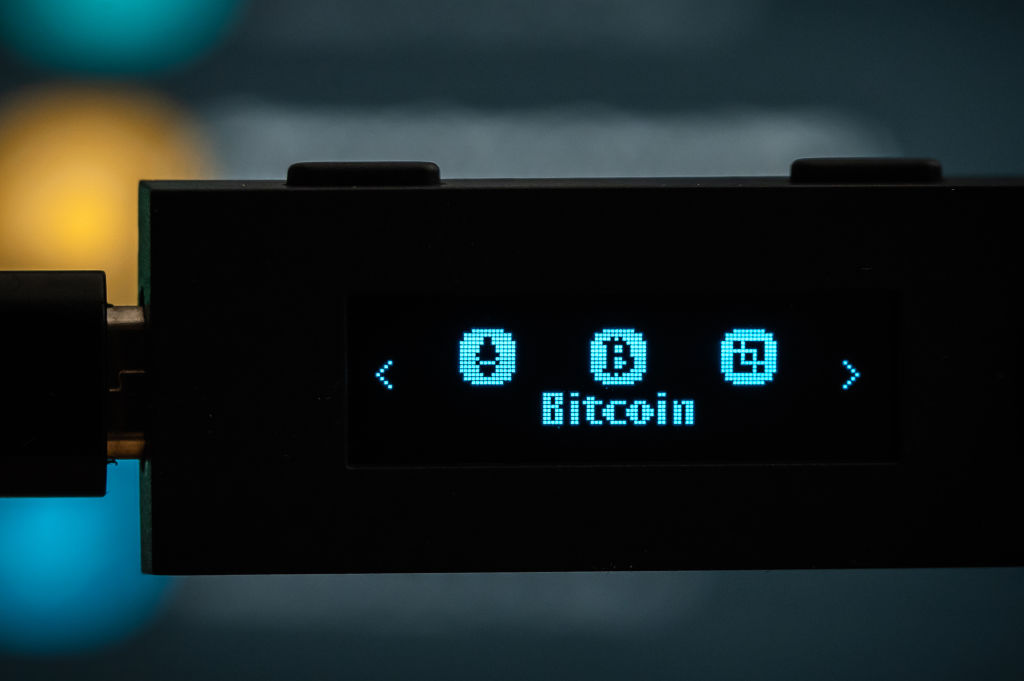Self-custody is a divisive topic in crypto and as such, there’s two main schools of thought that you need to be aware of.
On one side of the fence there stands a group of security conscious crypto investors who argue that self-custody is the most essential part of being in the crypto space from the outset. On the flip side there’s the more relaxed crypto enthusiast who prefers to entrust the management and security of their crypto assets to a third party custodian like an exchange.
Put simply, self-custody means storing your crypto in a specific type of wallet where you are in control of the private keys and seed phrases instead of trusting a third-party ‘custodian’ which usually takes the form of an exchange like Binance or Coinbase.
In short: custodial storage solutions rely on trusted third parties, much like a bank, whereas a self-custody approach entails you being your own bank.
Why is self-custody in crypto important?
Self-custody is important for anyone looking to have full control over their digital assets and avoid the risks associated with storing crypto on a centralised, third-party exchange. When you store your crypto on an exchange, you’re trusting this third party to keep your crypto assets safe at all times.
If something goes wrong with the exchange, your crypto can be at risk. After the world watched on in horror at the stunning collapse of FTX — where roughly 1 million people lost access to around US$10 billion of their hard-earned cryptocurrency — there’s been a renewed call for a self-custody approach.

Even though it’s still possible to mitigate the risks of keeping crypto on exchanges by choosing to opt for well-established, regulated and reputable companies – there’s always a risk of losing your crypto. Unlike bank deposits which are insured by the federal government, crypto deposits are not.
Exchanges are a form of centralised finance, and most are private companies. Storing cryptocurrency on an exchange requires trust that it will not get hacked, that they will hold the assets securely and that the crypto will always be available for the user to withdraw. You’re also trusting that they will remain fully solvent and legally compliant.
In addition to security, self-custody also enables users to take advantage of the many unique features that come along with cryptocurrencies, such as accessing the world of decentralised finance (DeFi). DeFi allows for the creation of decentralized financial instruments, such as loans and insurance, that aren’t controlled by a single point of failure. With self-custody, you gain the ability to participate in DeFi and take advantage of some of the benefits that it provides.
Finally, self-custody allows your to maintain greater privacy online. By holding your own assets, you can ensure that your financial information and sensitive data remains private.
What is a self-custody (non-custodial) wallet?
A self-custody wallet is a specific type of crypto wallet that allows you to hold and manage your digital assets securely, without relying on a third-party custodian like a crypto exchange. Self-custody wallets enable you to control your private keys and seed phrases, which are a crucial to allowing you to access and spend your crypto.
Quite literally, self-custody means that only you have the ability to buy, sell or move your digital assets or because you control the private key. This also means that you have the sole responsibility to safeguard access to your private key — if you lose it, you lose your crypto.

Non-custodial vs custodial wallets: what’s the difference?
Crypto exchanges such as Coinbase or Kraken provide custodial wallets, meaning they’re responsible for safeguarding your keys. Anytime you execute a crypto transaction of any kind on a crypto exchange, they take temporary control of your private key to “sign” the transaction. This entire process happens in the background and requires little-to-no user oversight on behalf of individual crypto investors.
Many users prefer custodial wallets because they would rather not bother with security themselves. However others believe that trusting control of their private keys to a third-party is completely unthinkable.
The key difference is that custodial wallets hand over control to a third party, whereas non-custodial wallets (self-custody wallets) allow you to have full control over your digital assets.
Types of self-custody wallets
Mobile wallet
A mobile self-custody wallet is a type of wallet that comes with capability for you to access your assets on a mobile device. This is ideal for someone looking to remain in control of their assets on the go.
Good examples of reputable mobile self-custody wallets include:
Smart contract wallet
A smart contract wallet is a device or application that lets users customise the way they would prefer to manage their digital assets.
This is achieved through a technical process called ‘account abstraction’, which is how developers make smart contract wallets possible. These developers literally ‘abstract’ all the crucial functions of an Externally Owned Account (EOA) and loop them into a smart contract that adds new layers of functionality to the self-custody wallet in question.
Self-custody smart-contract wallets are still very much in the development phase and as such, they are typically reserved for the more advanced crypto users. Still, if you’re interested in checking some out, DeFi Saver and Instadapp are two examples of free-to-use smart contract wallets available for use today.
Hardware wallet
As the name suggests, hardware wallets (also called ‘cold wallets’) are physical devices that can be used offline to store digital assets alongside the ‘access data’ associated with them. More often than not, they come in the shape of a USB device and can provide a high degree of resilience to external threats. The private keys contained in them are well protected and not exposed online at all times.

You can purchase a number of different hardware wallets from the following companies, and make selections from the range of products they offer to best match your self-custody needs:
Desktop wallet
Desktop self-custody wallets are also a great way to securely store your cryptocurrency in a way that is accessible from your personal computer.
Examples of reputable desktop self-custody wallets include:
- Guarda Wallet: Highly secure and user-friendly cryptocurrency wallet that allows users to buy, store, swap, and earn via staking a wide range of crypto assets.
- Exodus: offers self-custody of more than 260 crypto assets and is compatible with Ledger and Trezor devices.
- Electrum: Specifically for Bitcoin. Offers varying levels of self-custody for Bitcoin holders.
Paper wallet
A paper wallet is only for the most security-conscious of crypto users.
A paper wallet is a piece of paper with your private and public keys printed out on it. This acts as a way of taking the ability to access your cryptocurrency completely offline. When you print out your keys, they are removed from the cryptocurrency network. The tokens themselves remain online, however, they are completely inaccessible without these keys.
Paper wallets were typically used before cryptocurrency became popular and companies began developing more secure ways to safely store your keys. Crypto custody has come a long way since the early days, however a paper wallet still remains a valid way to store your keys in very niche circumstances.
Are self-custody wallets secure?
Self-custody wallets tend to be the most secure crypto wallets that you can use, because you control who has access at all times. If no one else has access to your seed phrase then you are the only one capable of accessing that wallet. In short: the only person you need to trust is yourself.
Can a self-custody wallet provider access my funds?
No, a self-custody wallet provider cannot access your funds. The beauty of a self-custody wallet means that you are in full control of your digital assets. However, this also means that if you lose the seed phrases or secret password attached to your self-custody wallet, then unfortunately your crypto is gone forever.
Are there non-self-custody wallets?
Yes. There are many non-self-custody wallets available for crypto users. The easiest way to gain access to a non-self-custody wallet is to sign up at any one of the top cryptocurrency exchanges and they will provide a non-self-custody (custodial) wallet for you.





